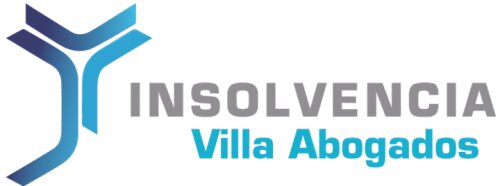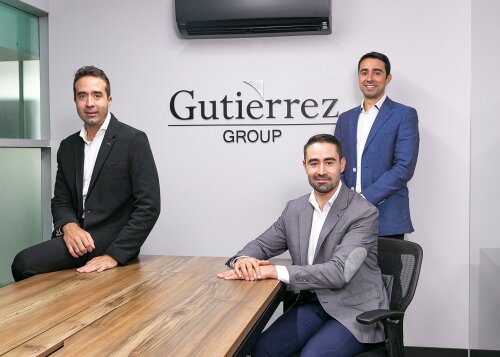Best Trusts Lawyers in Bogota
Share your needs with us, get contacted by law firms.
Free. Takes 2 min.
List of the best lawyers in Bogota, Colombia
About Trusts Law in Bogota, Colombia
In Colombia, including its capital city Bogota, the concept of a Trust is referred to as a “fiducia” and is governed primarily by the Civil Code and various financial regulations. A Trust (fiducia) is a legal arrangement where a person or entity (the trustor) transfers assets to a fiduciary (trust company or trustee), which holds and manages those assets for the benefit of a third party (the beneficiary). Trusts in Colombia are commonly used for estate planning, asset protection, investment projects, and ensuring compliance with specific conditions set by the trustor. Trust arrangements in Bogota are popular among individuals, families, and businesses due to their flexibility and legal protections.
Why You May Need a Lawyer
Several situations can make working with a lawyer essential when dealing with Trusts in Bogota:
- Drafting and structuring a new trust or fiducia that complies with Colombian law
- Interpreting the rights and obligations of the trustor, trustees, and beneficiaries
- Facilitating the transfer of real estate, financial assets, or business interests into a trust
- Resolving disputes among parties involved with the trust
- Modifying, terminating, or winding up an existing trust
- Understanding tax implications and optimizing tax benefits associated with trusts
- Ensuring compliance in trusts related to government contracts or public projects
- Protecting vulnerable beneficiaries such as minors or individuals with disabilities
A qualified lawyer can safeguard your interests, clarify complex legal terms and processes, and help avoid costly mistakes.
Local Laws Overview
Trusts in Bogota are primarily governed by national laws, including the Colombian Civil Code and dedicated financial statutes. The most common types of fiduciary arrangements are:
- Fiducia Mercantil (Commercial Trust) - Used in business or investment contexts, often involving trust companies regulated by the Financial Superintendency of Colombia.
- Fiducia Civil (Civil Trust) - Typically used for estate planning or personal reasons, allowing individuals to transfer property for the benefit of others.
- Fiducia Publica (Public Trust) - Employed by government entities for administration of public assets or projects.
Key legal aspects to consider include:
- Trust companies or fiduciaries must be licensed and regulated
- The terms and instructions set in the trust agreement are binding and enforceable
- Specific rules apply for the registration and transfer of real estate or significant assets into the trust
- Transparency and reporting requirements are in place for certain types of trusts
- Tax treatment of trusts differs based on the trust’s nature and purpose
Legal advice is crucial to navigate the complexities and ensure compliance with all local and national regulations.
Frequently Asked Questions
What is a trust (fiducia) in Colombia?
A trust, or fiducia, is a legal arrangement where a trustor transfers assets to a fiduciary (often a trust company), which manages those assets for the benefit of one or more beneficiaries under specific terms.
Who can act as a fiduciary in Colombia?
In most cases, only authorized fiduciary companies regulated under Colombian law can act as fiduciaries, especially for commercial or public trusts. For civil trusts, individuals may be appointed subject to legal requirements.
What assets can be placed in a trust in Bogota?
A wide range of assets can be transferred into a trust, including real estate, money, securities, business interests, and other valuable property. The specific assets must be clearly detailed in the trust agreement.
Are trusts in Colombia private or public?
Most civil and commercial trusts offer a degree of privacy, with details generally known only to the parties involved and relevant authorities. However, certain public trusts or those involving public assets may be subject to transparency requirements.
Can a trust help with inheritance planning?
Yes, trusts are commonly used as estate planning tools in Colombia, helping individuals organize succession, manage assets for beneficiaries (like minors), and potentially reduce inheritance disputes.
How are trusts taxed in Colombia?
Tax treatment depends on the nature of the trust (civil, commercial, or public) and the type of assets involved. Some trusts may result in tax liabilities for beneficiaries or the trustor. A lawyer can advise on specific cases.
How long does a trust last in Colombia?
The duration of a trust is set out in the trust agreement. Some trusts are temporary (for a project or specific time period), while others can be indefinite or until a certain condition is met.
What happens if there is a dispute between trust parties?
Disputes may be resolved through mediation, arbitration, or litigation before Colombian courts, depending on the trust agreement’s terms and the dispute type. Legal counsel is highly recommended in such situations.
Can a trust be changed or cancelled?
Yes, changes or termination can occur according to the terms in the trust agreement and Colombian law. In some cases, all parties must agree, or judicial intervention may be necessary.
Do I need a lawyer to create or manage a trust in Bogota?
While you are not strictly required by law to have a lawyer, it is highly advisable due to the complexity of trust arrangements and potential legal consequences. A lawyer ensures that your trust is properly set up and compliant with all regulations.
Additional Resources
- Superintendencia Financiera de Colombia: The government agency that regulates financial entities, including fiduciary companies.
- Notaries Public (Notarías) in Bogota: Handle documentation and registration of trust agreements involving real estate or significant assets.
- Colombian Bar Association (Colegio de Abogados): Provides directories of certified lawyers with expertise in trusts and estate planning.
- Local law firms and fiduciary companies: Offer specialized services in drafting, managing, and advising on trusts.
Next Steps
If you are considering creating, modifying, or disputing a trust in Bogota, begin by gathering and organizing all related documents and information about your assets, objectives, and intended beneficiaries. Consult with a qualified local lawyer who has experience in fiduciary law to discuss your needs and receive tailored advice. Your lawyer will guide you through legal compliance, drafting agreements, registering the trust as needed, and representing your interests if disputes arise. Reach out to trusted legal organizations or the above mentioned governmental bodies for further assistance.
Investing time in understanding and correctly setting up a trust can offer long-term protection and peace of mind for you and your loved ones or business partners.
Lawzana helps you find the best lawyers and law firms in Bogota through a curated and pre-screened list of qualified legal professionals. Our platform offers rankings and detailed profiles of attorneys and law firms, allowing you to compare based on practice areas, including Trusts, experience, and client feedback.
Each profile includes a description of the firm's areas of practice, client reviews, team members and partners, year of establishment, spoken languages, office locations, contact information, social media presence, and any published articles or resources. Most firms on our platform speak English and are experienced in both local and international legal matters.
Get a quote from top-rated law firms in Bogota, Colombia — quickly, securely, and without unnecessary hassle.
Disclaimer:
The information provided on this page is for general informational purposes only and does not constitute legal advice. While we strive to ensure the accuracy and relevance of the content, legal information may change over time, and interpretations of the law can vary. You should always consult with a qualified legal professional for advice specific to your situation.
We disclaim all liability for actions taken or not taken based on the content of this page. If you believe any information is incorrect or outdated, please contact us, and we will review and update it where appropriate.











